Latest News
SIGAR finds US aid vetting failures may have benefited militants in Afghanistan
The Bureau of Democracy, Human Rights and Labor, and the Bureau of International Narcotics and Law Enforcement Affairs could not provide enough documentation to prove their adherence, Reuters reported.
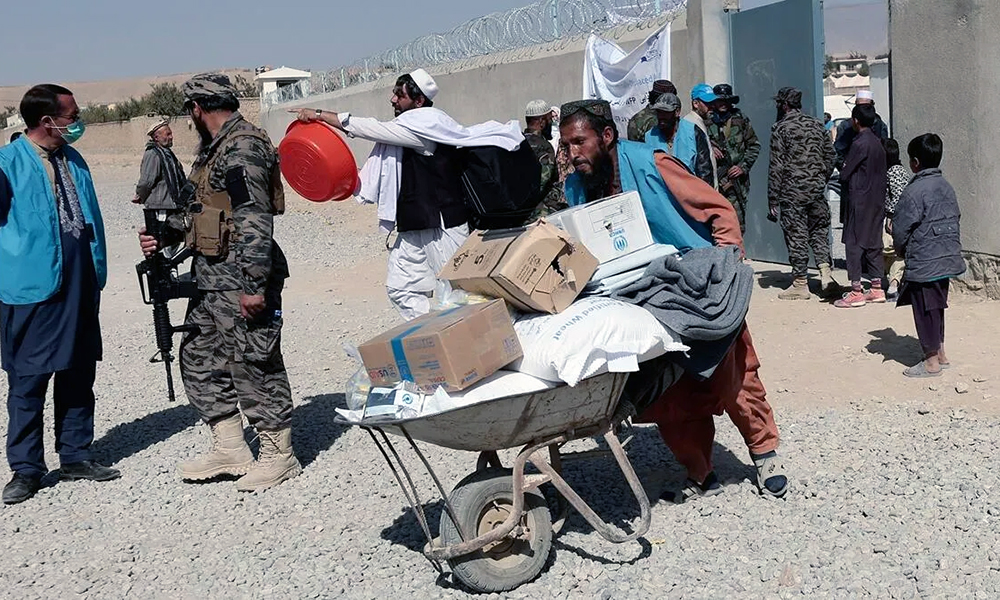
Two State Department bureaus could not prove compliance with internal policies for vetting aid groups in Afghanistan that received $293 million in funds, Washington’s Special Inspector General for Afghanistan Reconstruction (SIGAR) said Wednesday.
“It is critical that State knows who is actually benefiting from this assistance in order to prevent the aid from being diverted to the Taliban (Islamic Emirate) or other sanctioned parties,” said the latest SIGAR report.
According to the report, the Islamic Emirate of Afghanistan (IEA) has tried to obtain US aid funds “through several means, including the establishment of humanitarian organizations,” underscoring the need for the department to “fully and consistently assess the risks posed by its implementing partners.”
SIGAR said three of five State Department bureaus were found in compliance with department regulations requiring vetting of aid fund recipients.
But the Bureau of Democracy, Human Rights and Labor, and the Bureau of International Narcotics and Law Enforcement Affairs could not provide enough documentation to prove their adherence, Reuters reported.
“State could not demonstrate compliance with its partner vetting requirements on awards that disbursed at least $293 million in Afghanistan,” the report stated.
For that reason, “there is an increased risk that terrorists and terrorist-affiliated individuals and entities may have illegally benefitted,” it said.
The department agreed with the report’s conclusions and would “work to ensure compliance” with vetting requirements, it said.
The US remains the largest aid donor to Afghanistan nearly three years after the IEA regained power.
Since the US withdrawal was completed on Aug. 30, 2021, Washington has provided more than $17.9 billion in assistance to Afghanistan.
The Islamic Emirate rejects claims of misuse of aid from the international community, including the United States of America.
The Ministry of Economy has also rejected the misuse of humanitarian aid and says that the aid is provided to deserving and needy people in a transparent and trustworthy manner.
The United States remains the largest donor to Afghanistan.
Previously SIGAR reported that during the last three years, US aid implementation partners in Afghanistan have paid at least $10.9 million in taxes and money for water and electricity to the current Afghan government.
Related Stories:
SIGAR reports a large percentage of US aid is being diverted to the IEA
SIGAR finds Pentagon failed to control disbursement of Afghan defense force salary funds
Latest News
Afghan delegation to participate in Iran’s international expo
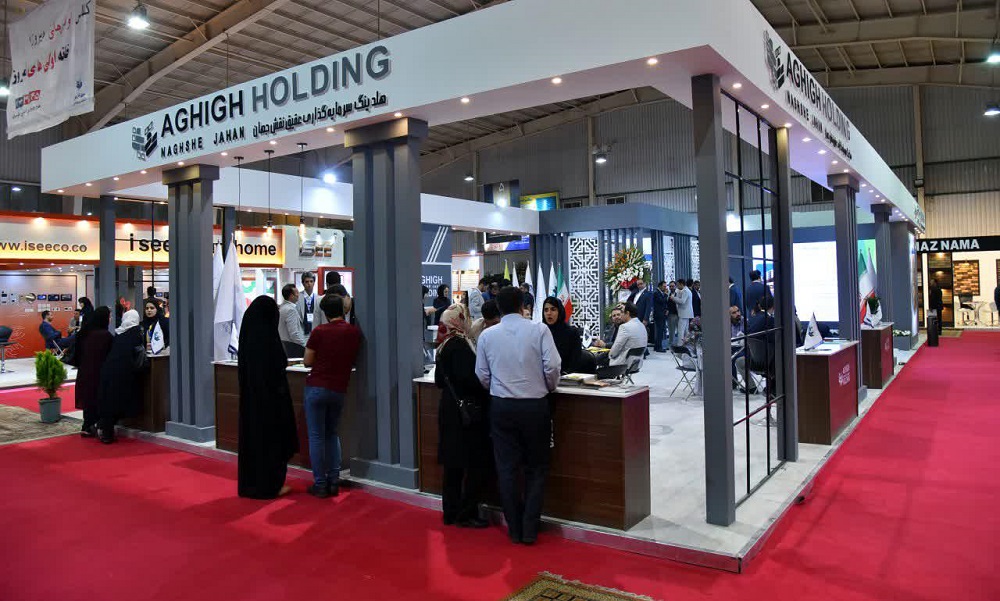
Iranian officials have announced that a 200-member delegation, comprising Afghan government officials and private sector representatives, will attend the 7th International Exhibition of Iran’s Export Capabilities.
Officials from the Islamic Emirate, meanwhile, consider the presence of Afghan traders at this exhibition to be significant, stating that showcasing domestic products will help promote and market Afghan goods.
Abdul Latif Nazari, Deputy Minister of Economy, said: “Economic cooperation between the private and public sectors of Afghanistan and Iran is in the interest of both countries.”
“The visit of the high-ranking delegation of the Islamic Emirate to Iran can play a vital role in expanding economic and trade exchanges between the two countries,” he added.
In addition, Afghanistan Chamber of Commerce and Investment (ACCI) said that 80 booths have been allocated to Afghan traders at the exhibition, where agricultural products, precious stones, and other Afghan goods will be showcased.
Several experts also stated that Afghanistan’s participation in regional and international exhibitions is important and can lead to stronger economic ties with other countries.
This comes as Iran remains one of Afghanistan’s key economic partners, with annual trade volume between the two nations exceeding $3 billion.
Latest News
14 kms of TAPI pipeline laid inside Afghanistan, says project manager
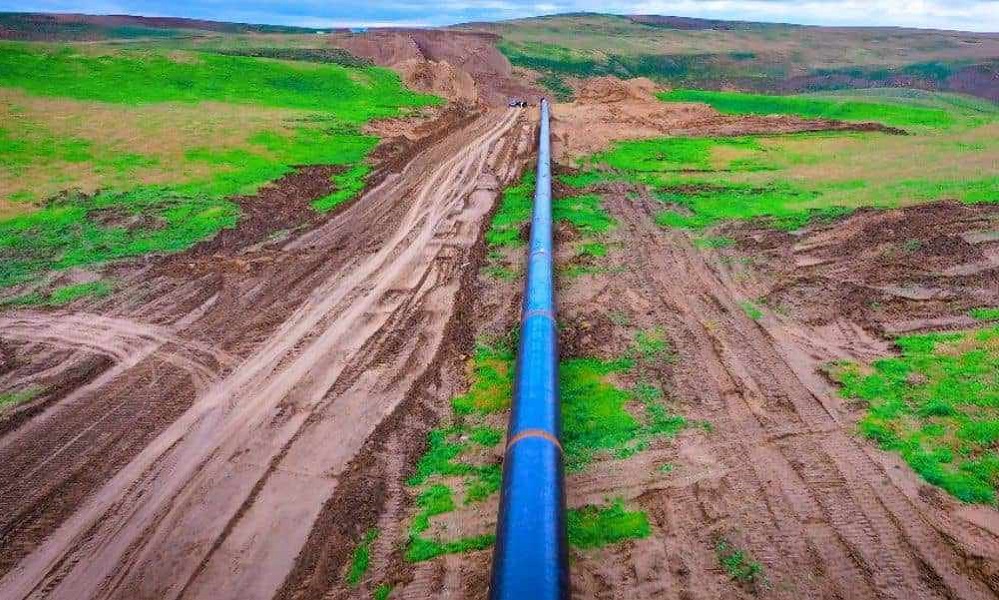
Baganch Abdullayev, the General Director of the TAPI project in Afghanistan, on Thursday met with Noor Ahmad Islamjar, the governor of Herat, for a report back on progress made in accelerating the pipeline-laying process of the Turkmenistan-Afghanistan-Pakistan-India project in the province.
The Herat governor’s press office said in a statement that Abdullayev shared a brief report on the progress of the TAPI project with Islamjar.
According to the statement, Abdullayev said so far 14 kms of pipeline has been laid while an additional 24 kms of ground has been levelled for the pipeline.
During the meeting, the governor of Herat also welcomed the efforts of TAPI project officials in advancing the work and assured the project head of the local administration’s full support in facilitating the swift progress of the project.
Once completed, TAPI pipeline will transport natural gas from the Galkynysh Gas Field in Turkmenistan through Afghanistan into Pakistan and then to India.
The pipeline was completed on the Turkmenistan side in 2024, and the project is currently expanding southbound in Herat Province of Afghanistan.
Latest News
WFP appeals for $25 million to help support Afghan returnees amid humanitarian crisis
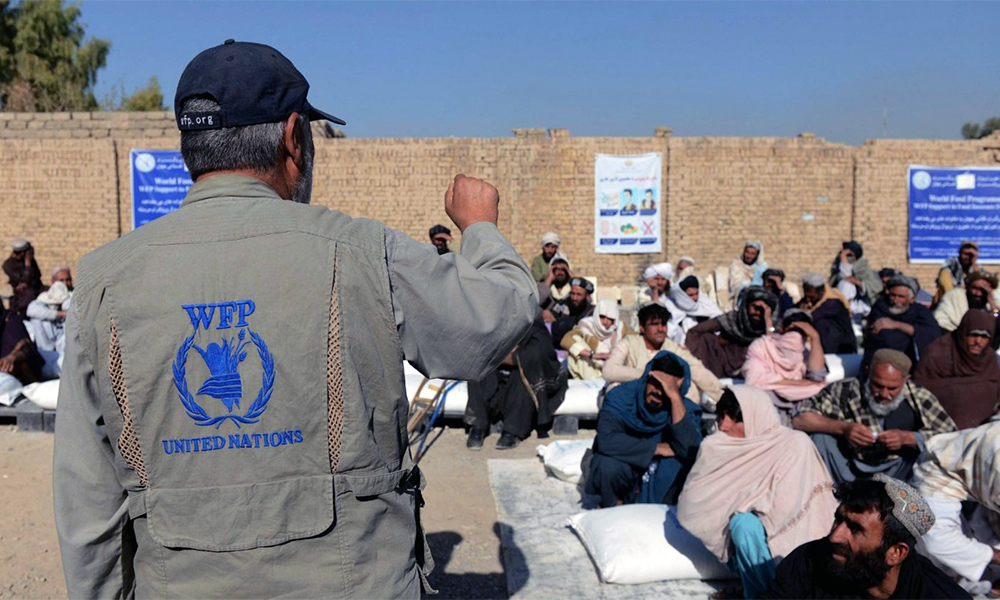
The World Food Programme (WFP) this week issued an urgent appeal for $25 million to address the escalating needs of Afghan refugees being expelled from Pakistan.
According to the WFP, thousands of Afghan families are crossing into Afghanistan from Pakistan every day and face serious food insecurity.
The organization also stated that millions in Afghanistan are grappling with severe hunger, and immediate aid of $25 million is needed to assist returnees.
On Wednesday, April 23, in a video shared on X, WFP’s head in Afghanistan, Mutinta Chimuka, visited the Torkham border crossing with Pakistan. During her visit, she highlighted the challenges faced by returnees, many of whom have spent their entire lives in Pakistan and are unfamiliar with Afghanistan.
Chimuka pointed out that many returnees have no income, employment, food, or shelter.
The WFP stressed that thousands of families are being forced to leave Pakistan, while 15 million people in Afghanistan are uncertain where their next meal will come from. The situation has become dire, with basic needs going unmet for a large portion of the population, the WFP said.
Chimuka warned that current aid efforts are insufficient to support the returnees, and new financial resources are urgently needed to address their needs by the end of the year.
Meanwhile, the pace of deportations and expulsions of Afghan migrants from neighboring countries, particularly Pakistan, continues to increase. The Pakistani Ministry of Interior reported that over 100,000 Afghan migrants have been returned since April 1.
The International Committee of the Red Cross (ICRC) has also raised alarm, noting that while thousands of refugees return every week, there are millions of Afghans who are currently facing poverty, homelessness, and difficult living conditions.
-

 World5 days ago
World5 days agoThousands of protesters rally against Trump across US
-

 Latest News5 days ago
Latest News5 days agoPolio vaccination campaign launched in Afghanistan
-

 International Sports3 days ago
International Sports3 days agoIPL 2025: Robo-Dog ‘Champak’ explained
-

 International Sports5 days ago
International Sports5 days agoIPL 2025: 14-year-old Vaibhav Suryavanshi becomes youngest IPL player
-

 Latest News4 days ago
Latest News4 days agoAriana Afghan Airlines increases flights to China
-

 World4 days ago
World4 days agoPentagon chief Hegseth shared sensitive Yemen war plans in second Signal chat, source says
-

 Latest News4 days ago
Latest News4 days agoChina invites various Afghan delegations to attend Shanghai forums
-
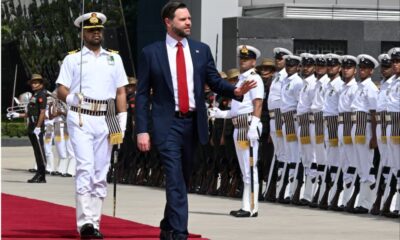
 Regional4 days ago
Regional4 days agoJD Vance arrives in India, to hold talks with Modi under US tariffs shadow


























